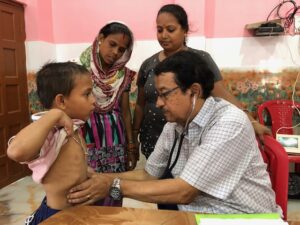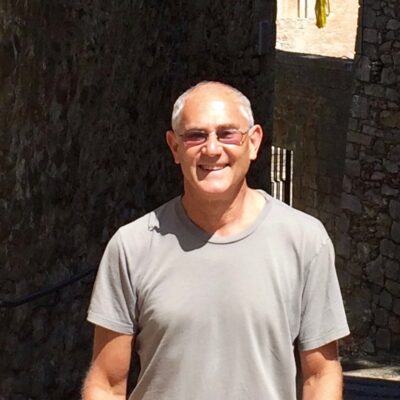Alan Schamroth
I was born into a Jewish South African family aware of the injustice of apartheid and concerned for the marginalised and the underprivileged. This no doubt influenced my career in general practice. However, my interest in public and global health began with a basic frustration that as a GP, I was treating patients with chronic illnesses such as heart and lung disease, arthritis, and diabetes at the end of their illness journey, and really what I should have been doing is focusing on preventing the illness in the first place. But I’m a slow learner and it took me 35 years to realise that promoting health before the onset of disease required public health intervention. Such as encouraging people to cycle, walk, take public transport, consume less high-sugar processed foods, and stopping them from smoking and drinking. So, at the age of 60, I decided to pursue this interest further. I gave up my GP partnership, moved to work part-time, and embarked on an MSC in Global Health Policy at the London School of Hygiene & Tropical Medicine.
This course reaffirmed my conviction that public health action is vital to improve not only my health, and that of my patients, but the health of society as a whole. During the course, I also realised that public health is dependent on planetary health, which incorporates thriving ecosystems, sustainable development, stable climates and peaceful coexistence.
As I studied further, I became more interested in global health and developed a strong desire to contribute to this field. This led me to volunteer for an NGO called “Calcutta Rescue” which provides basic healthcare to those living in slums in Kolkata. I now spend several months each year in Kolkata, where I educate and train doctors to help the slum dwellers take better care of their health and become more resilient. I also develop ways to work sustainably by implementing projects such as recycling and prescribing medication with a lower carbon footprint. Interestingly, I found it easier to develop climate change mitigation and adaptation policies in Kolkata than in my own general practice in London.


Despite facing challenges such as the difficulty of pursuing academia at an older age and being away from my family for extended periods of time, pursuing this passion has given me a great sense of satisfaction and fulfilment. I feel alive, challenged, and relevant, and take pride in making a positive difference in people’s lives.
If you’re interested in pursuing a new passion, my advice is to approach it with enthusiasm, curiosity, and openness. Believe in yourself, and don’t be afraid to face setbacks. Remember that the journey itself, rather than the end result, is what truly matters when it comes to following your passion.
Circle Square Member Q&A
What 3 words best describe you?
Hedonistic, passionate, pioneering.
If you could offer your younger self one piece of advice, what would that be?
Get yourself a mentor. If I had a mentor to guide me through my options and passions, it would have helped me to avoid going into general practice and choose public health medicine earlier.
What do you consider to be your greatest achievement?
I did a stand-up comedy gig at my retirement party, and I loved every minute of it!
Which person (dead or alive) would you most like to invite to dinner?
Nelson Mandela. For his vision, his compassion, and his ability to forgive.
How has age strengthened your advantage?
As I’ve aged, I’m better able to choose which battles to fight. Some stuff, I just let go and some is worth standing up for.
What inspired you to join Circle Square?
Noam! He is a legend.


